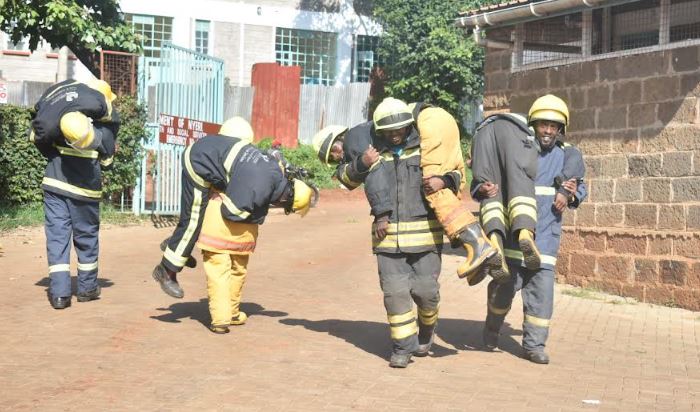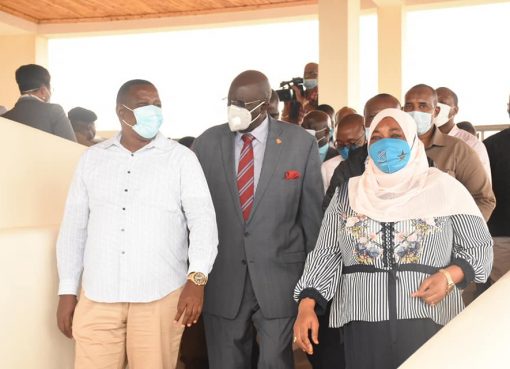The Senate has drafted a Bill that seeks to regulate the operations of fire and rescue services in Kenya by establishing a Fire and Rescue Service Professionals Board.
According to the Act, the Board will, among others, provide for the examination, training, registration and licensing of fire and rescue services professionals.
Those who will sit in the Board include a chairman appointed by a Cabinet Secretary in the relevant ministry, PSs in the Ministry responsible for matters relating to fire prevention and disaster management, Treasury and the Ministry for Internal Security.
Others who will sit in the Board include one person nominated by the Kenya Red Cross Society, two persons nominated by the Council of County Governors, one person nominated by the Kenya National Fire Brigades Association, one person nominated by the Kenya Medical Association and a registrar who shall be an ex-official member and who shall have no vote.
The Board, which will have its headquarters in Nairobi, will be mandated to advise the National and County Governments on fire prevention and fire and rescue services matters.
“The Board will collaborate with fire and rescue services training institutions, professional associations, fire brigade organizations and other relevant bodies in matters relating to training and professional development of fire and rescue services professionals. (Additionally, the board shall license and regulate fire and rescue services, register fire and rescue services in Kenya and develop a code of conduct for fire and rescue services professionals in Kenya,” Reads Article 7(c,d,e and g) of the proposed legislation by Wajir Senator Mohammed Abass Sheikh.
The Bill has also spelt out that no person shall practice as a fire and rescue service consultant, a fire and rescue service professional or be allowed to operate a private fire brigade firm unless registered in accordance with the provisions of the Act.
For a person to be eligible for registration as a fire rescue services professional in Kenya, they must have a degree, diploma or certificate in a fire and rescue course from a recognised institution in Kenya or equivalent qualifications from a recognised foreign institution.
Any person found to have willingly flouted the provision of the Bill risks a fine of sh 500,000 to sh 1 million or an imprisonment term not exceeding five years or both.
Such offences include deliberately failing to follow the standards of conduct and practice set by the Board, committing gross negligence in the conduct of professional duties or lack of competence or ability to render professional fire and rescue services.
“A person who willingly procures or attempts to procure registration or licensing under the provisions of this Act by making or producing or causing to be made or producing any false or fraudulent representation or declaration, either orally or in writing, commits an offence and is liable on conviction to a fine not more than five hundred thousand shillings or to imprisonment for a term not exceeding five years, or both,” the Bill continues in Article 29(1).
“A person who, being in charge of a training institution which is not recognized by the Board as an institution registered or seeking registration under this Act, commits an offence and is liable on conviction to a fine of two million shillings or to imprisonment for a term not exceeding five years, or both.” Adds Article 31.
Persons who may feel dissatisfied with any professional fire and rescue services offered will also have recourse to channel such complaints to the Board.
Upon receiving such an inquiry, the Board will summon the person or a representative of his or her choice to offer him or her the right of reply.
Fire disasters account for 20 per cent of the total disasters that occur in Kenya, according to an article published in the European Journal of Humanities and Social Services published on February 16, 2023.
From 2014 to 2022, a total of 248 fire incidents were reported in Nairobi alone, 30 of which occurred in Gikomba Market.
The article, Strengthening Resilience to Fire Disasters through Community Participation, noted that despite the concept of multi-stakeholder having been adopted in Kenya, the community’s involvement in disaster risk management has always been passive.
By Samuel Maina




